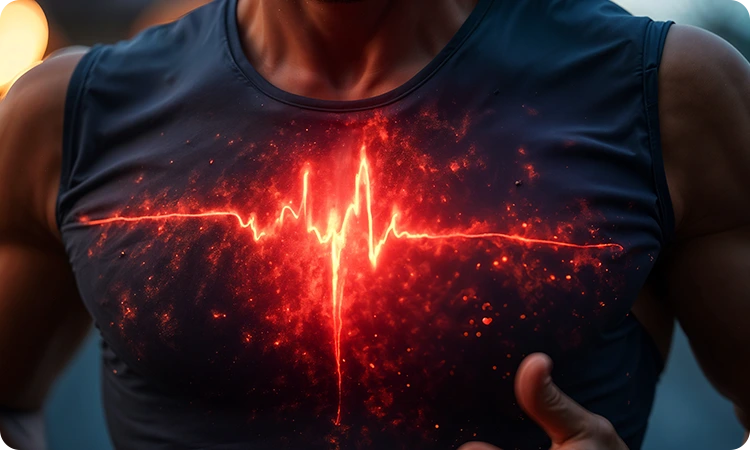Metabolic Syndrome
- Home
- »
- Ayurveda Speciality
- »
- Metabolic Syndrome
Metabolic Syndrome Treatment in Dubai
Diabetes

In type 1 diabetes (juvenile diabetes or insulin-dependent diabetes), the pancreas produces little or no insulin, a hormone needed to allow glucose to enter cells to produce energy. In people with type 1 diabetes, our own misdirected immune system destroys the insulin-producing (islet) cells in the pancreas. Ayurveda treat Type 1 Diabetes as Madhumeham associated with Dhatu Kshayam. With type 2 diabetes, your body either resists the effects of insulin — a hormone that regulates the movement of sugar into your cells — or doesn’t produce enough insulin to maintain a normal glucose level. Some people with type 2 diabetes can manage their blood sugar with exercise and diet alone.
Ayurvedic books describe a condition named Madhumeha under the category of Urinary disorders (diseases associated with Polyurea), which is accepted as Diabetes mellitus in the Ayurveda world. Ayurveda explains 2 types of Madhumeha, 1) due to congenital factors 2) due to improper lifestyle habits. Ayurveda does not consider diabetes as a disease that can be treated by mere medication or diet. Instead it is based on the entire change in the lifestyle of a person. Even the mental aspects of the person which trigger the disease are covered. Diabetes can cause several complications in the long run and Ayurvedic treatment approach takes into consideration all such possible complications. Ayurveda is closely knit with yoga in the treatment of diabetes. Many herbal drug combinations are being successfully used for the control of hyperglycaemia especially in non-insulin dependent Diabetes mellitus (Type 2).
Ayurveda offers effective diabetic medications; in mild to moderate cases, they can be alternative and in severe cases they act as excellent complimentary support.
Dr. Shyam’s Ayurveda Clinic specializes in providing effective metabolic syndrome treatment in Dubai, offering holistic solutions to address the underlying causes and promote overall well-being.
Ayurveda treatment for metabolic syndrome
Treatment tips:
- In pre-diabetic condition (a fasting blood sugar level from 100 to 125 mg/dL); with healthy lifestyle changes, such as eating healthy foods, including physical activity in your daily routine and maintaining a healthy weight — one may be able to bring your blood sugar level back to normal.
- This is mostly a lifestyle disorder and, one can manage the condition by eating well, exercising and maintaining a healthy weight.
- Control on carbohydrate intake, frequent blood sugar monitoring and following a healthy lifestyle is the accepted protocol for the management of Diabetes.
- If diet and exercise don’t control your blood sugar, you may need diabetes medications.
- Commonly used medicines are Kataka khadiradi kashayam, Nisakatakadi kashayam, Aragwadhadi kashayam, Guggulu thiktakam, Chandraprabha vati etc. There are a range of traditional Ayurvedic recipes; meet our Ayurvedic doctor in person to determine the dosha (Vata, Pitta, Kapha) type.
- Many alternative therapies with bran of cereal grains, bitter melon, fenugreek, cinnamon, ginseng, gymnema have been advertised as possible ways to treat or prevent type 2 diabetes.
- Take a teaspoon of Amla & turmeric at bedtime mixed with water.
- Foods that must be avoided by diabetic: Sweets, ice-creams, fruit sugar, cakes, pastries, sweet biscuits, chocolates, soft drinks, condensed milk, cream, molasses
- Foods to be consumed in a limited manner by diabetic: Excessive salt intake, red meat, poultry, egg, coffee, tea, and alcohol. These should be especially avoided when you have an empty stomach. Other examples: pasta, coconut, honey, palm sugar, and yogurt.
- Beneficial Foods for diabetic: Fig, pomegranate, and citrus fruits, vegetables such as cabbage, broccoli, spinach, carrots, radish, beet, garlic, onion, cucumber, lettuce and tomato, cereals, whole grain foods, sprouts and grains such as Bengal gram and chickpeas.
- Herbal Dietary Supplements for diabetic: Ginseng, Cinnamon, Aloe Vera, Amla, Green Tea, Fenugreek, Neem and Turmeric.
Metabolic Syndrome Treatment in Dubai
High Cholesterol & Lipids

Hyperlipidaemia is an elevation of lipids (fats) in the bloodstream. These lipids include cholesterol, cholesterol esters (compounds), phospholipids and triglycerides. One can check the lipid profile to find the levels of HDL (good) cholesterol, LDL (bad) cholesterol and triglycerides. High cholesterol (hypercholesterolemia) can be inherited, but it’s often the result of unhealthy lifestyle choices.
When you have high cholesterol, you may develop fatty deposits in your blood vessels. Eventually, these deposits make it difficult for enough blood to flow through your arteries. Your heart may not get as much oxygen-rich blood as it needs, which increases the risk of a heart attack. Decreased blood flow to your brain can cause a stroke. The causative factors within your control are inactivity, obesity and an unhealthy diet. The screening test that is usually performed is a blood test called a lipid profile. The lipid profile includes:
- LDL (low-density lipoprotein cholesterol, also called “bad” cholesterol)
- HDL (high-density lipoprotein cholesterol, also called “good” cholesterol)
- Triglycerides (fats carried in the blood from the food we eat. Excess calories, alcohol, or sugar in the body are converted into triglycerides and stored in cells)
Ayurveda treatment for high cholesterol
Treatment tips:
- To bring your cholesterol numbers down, lose excess weight, eat healthy foods and increase your physical activity.
- Olive, peanut and canola oils are healthier option. Almonds and walnuts are other sources of healthy fat.
- Avoid margarines, commercially baked cookies, crackers and snack cakes
- Avoid organ meats, egg yolks and whole milk products.
- Favour – whole-grain breads, whole-wheat pasta, whole-wheat flour and brown rice.
- Avoid oil fried foods
- Favour fiber rich food, horse gram, garlic, fenugreek, bitter gourd, greens, soya beans, tomato, radish etc
- Increase intake of fruits, vegetables and fishes (tuna, mackerel, sardines)
- Work up 30 to 60 minutes of exercise a day
- Take Ayurveda recipes like Varanadi kashayam, Guggulu thikthakam kashayam, Kanmada bhasma etc. on a prescription. Ayurveda experts at Dr.Shyam’s Ayurveda can suggest best Ayurvedic herbs and medicines for high cholesterol. Meet our Ayurveda doctor in Dubai or in Ajman.
- Include garlic, fenugreek seeds in your diet
- Eat a variety of foods; avoid eating the same foods every day; variation of the foods you eat, allows for a greater intake of the vitamins and minerals the body needs.
Metabolic Syndrome Treatment in Dubai
Obesity

The over weight or obesity is due to an imbalance of calories from consumed calories burnt with physical activity as there occurs factors apart from the genetic and hormonal influences on overweight. The Impact of Certain medications may contribute for obesity. There are also other underlying issues such as environmental factors, and psychological issues, physical inactivity due to injury or illness, and eating habits. An obese person will have a raised BMI of 30 or more . The Global increases in overweight and obesity are related to multiple factors -global shift in diet towards increased intake of energy-surplus foods and a trend towards sedentary lifestyle. If a person eat 150 calories in a day than required in activity ,can add 5kg within a year. Eating 500 calories less per day,help to reduce 0.5 to 1 kg per week. This is a realistic weight loss. The effort to watch your food habits to know the factors contributed to your excess weight will help the doctor to reduce the weightgain.The Understanding causes of your weight-reducing,will lead to steps of a new, healthier lifestyle.
Ayurveda approach of slimming is about external therapies and combined healthy lifestyle through the holistic & natural approach. An effective weight reduction program shall focus on the below objectives:
- Healthy weight reduction – without complications
- Stable & steady results – not a temporary treatment to reduce water retention
- Total health management alongside weight reduction
- Person centric approach instead of “One bullet for All”
- Treat the cause
Ayurveda explain natural weight reduction programs. This includes intake of medications, procedures and lifestyle regimen to be followed. This will deplete or break down your excess stores of fat, regulates cholesterol and triglyceride levels. These treatments will balance the digestive power, which prevent the further fat deposition and nourishes each and every structural component.
Treatment Tips:
- The habit of walking for one hour (moderate speed; 3 mph) to burn the calories from one cup of cooked white medium grain rice (approx. 250 kcal); therefore, what you eat is more important.
- To lose weight, you need a firm decision to lose the weight and need to convince yourself that you CAN lose the weight–and that you WILL!
- Weight loss requires, Consistency. Most of us work so hard to stick to our diet during the week that we convince ourselves that we can splurge on the weekend. Or we think that because we skipped breakfast, we can have dessert with lunch. Both are a bad choice.
- Make sure you reduce the size of your portions and cut out all snacks that are not part of your diet plan
- You need to make sure that the foods you do eat are the right types. A good rule of thumb is to make sure you get plenty of fruits, salads, and dark green vegetables. Stay away from refined foods and starches and eat meat in very small amounts. Crash diets to reduce calories aren’t recommended because they can cut so many calories and nutrients that they lead to other health problems, such as vitamin deficiencies. Fasting isn’t the answer, either.
- To lose weight, indulge in 20 to 30 minutes of exercise.
- Slow your exercise down to no more than 85% of your maximum heart rate (subtract your age from 220 to get your max heart rate). At this pace, your body burns fats more effectively.
- Not getting enough sleep can slow your metabolism making weight loss difficult.
- Make sure you’re not setting yourself up for disappointment by setting a weight loss goal that is totally unrealistic.
- You may contact our best Ayurvedic doctors in Dubai / Ajman in person to diagnose the cause of weight gain.
Metabolic Syndrome Treatment in Dubai
Hypothyroidism
The Hypothyroidism is a hormonal value. The thyroid hormones are required for the proper functions of the body. Hence, its deficiency have diverse manifestations with multisystem involvement. According to modern medicine, the basic cause of hypothyroidism is abnormality in thyroid gland, pituitary defects and hypothalamic dysfunctions. i.e primary, secondary and tertiary causes,primary is the most common.
In Ayurveda the illness associated to thyroid is known as “Galaganda” (Enlarged thyroid gland). In Hypothyroidism, the vata-kapha dosha and medo dhatu obstruct the pitta functioning. The Ayurveda treatment cleans the channels and provides the normal functioning of the gland.
Treatment Tips:
- Food and medicines which improves appetite(deepana), digestive (pachana), hot (ushna) qualities are effective in the cure of Hypothyroidism.
- The use of Ghee, rice, Barley, Green peas, BottleGuard, Drumsticks will improve the functions of Thyroid gland .
- Avoid milk preparations,Sugar cane preparations, all types of meat, sweet-sour predominant food items.
- Herbs such as Commiphora mukul (Guggulu), Bauhinia variegata (Kanchanara), Boerhavia diffusa (Punarnava) are useful.
- Digestive spices like cinnamon, fennel, ginger, turmeric, and cardamom can be added to regular diet to improve the metabolism
- Adding onions, garlic, and ginger, as well as teas of sage, thyme and strawberry leaf may also be useful.
- Decrease the intake of raw cruciferous vegetables, particularly radishes, and other goitrogenic foods such as broccoli, cabbage, and brussel sprouts, as well as soy, peanuts, and canola oil.
- The formulations such as Kanchanara Guggulu, Varanadi Kashaya, Mahayogaraj Guggulu, Aswagandharistha, Triphala (Emblica officinalis, Terminalia chebula and Terminalia bellirica), Chandraprabha Vati are suggestive for the HYpothyroidism.
- The Yogasanas like Halasanam, Paschimothanasanam, Matysaasanam, Sarvangasanam, Pavanamuktasanam, Suryanamaskaram Simhagarjanasanam and Kandarasanam are found beneficial.
- The breathing exercises like Pranayamam- Sheetali, Seethkari, Bastrika, Anuloma-viloma pranayam and Ujjay swasa aids the healthy functioning of thyroid gland.
- The procedures such as Udwartana, Abhyanga, Kizhi, Nasya is effective in dysfunctions of Thyroid gland.
